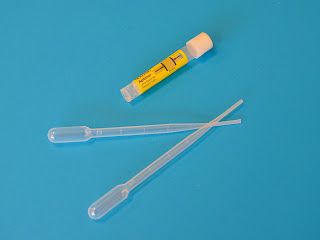STIs are common in the USA.
STIs are common in the United States. They can be caused by bacteria such as chlamydia, gonorrhea, syphilis, as well as viruses such as human immunodeficiency virus (HIV), human papillomavirus (HPV) and herpes simplex virus (HSV).STI testing is important when teens are sexually active. This is because STIs often have no signs or symptoms. However, if left untreated, some of these infections can cause problems such as infertility and an increased risk of contracting HIV.
- STIs
are sexually transmitted infections that are spread through sexual contact
(vaginal, anal, and oral).
- Examples
of STIs are Chlamydia, Gonorrhea, Genital Herpes, HIV, Gentle Warts, and Trichomonas.
- Some
STIs can be treated with antibiotics (eg, gonorrhea, chlamydia).
- Some STIs cannot be treated, but the symptoms can be reduced by taking prescription drugs (for example, herpes, HIV).
- AIDS (HIV)
- Bacterial Vaginosis (female only)
- Chlamydia
- Gonorrhea
- Hepatitis B
- Herpes Simplex (genital)
- Lice (genital or pubic)
- Molluscum Contagiosum (genital)
- Syphilis
- Trichomonas Infections
- Warts (genital)
- Yeast infections
·
Most
STIs are spread by the exchange of body fluids (semen, vaginal fluid or blood)
during oral, anal or vaginal sex.
·
They
can also be the result of direct contact with any wound during sexual
intercourse.
·
Condoms
are the only reliable way to prevent most STIs during sex.
2. Use of condoms:
· Condoms
are the only reliable way to prevent most STIs during sex.
· Putting
on the condom: (1) Hold the tip of the condom to expel the air. (2) Roll the
condom over the erect penis. Do not try to put a condom on a soft penis.
· How
to remove the condom: (1) After having sex, hold the condom while removing the
penis. This will prevent the condom from breaking before the penis comes out.
(2) The penis should be pulled out when erect to prevent semen (semen) from
leaking out of the condom.
· Buy
latex, rubber, or plastic condoms. Never use condoms made from animal skins;
they can leak.
· If
you use a lubricant during sex, make sure it's water-based (such as K-Y
Liquid). Do not use petroleum jelly, vegetable oil, or baby oil. These can
cause a condom to break.
3. Actions that do not prevent STIs:
·
Douching
(washing the vagina with water or other liquids) or douching after intercourse
does not prevent STIs.
·
Diet
(when a man removes his penis before ejaculation or "coming") is not
a way to prevent STIs or pregnancy.
·
Having
an STI once does not prevent you from recurring or any other type.
·
Using
other forms of birth control, such as IUDs, birth control pills, implants, or
injections does not prevent you from getting an STI.
·
You
still need to protect yourself from condoms.
·
Do
you have any symptoms that you think could be an STI?
·
You
have sex without a condom or the condom breaks during sex. Reason: Emergency
contraceptive pills can prevent pregnancy if taken within 72 hours.
·
You
are a woman and you are not menstruating and you may be pregnant.
·
Do
you have other questions or concerns?







Comments
Post a Comment